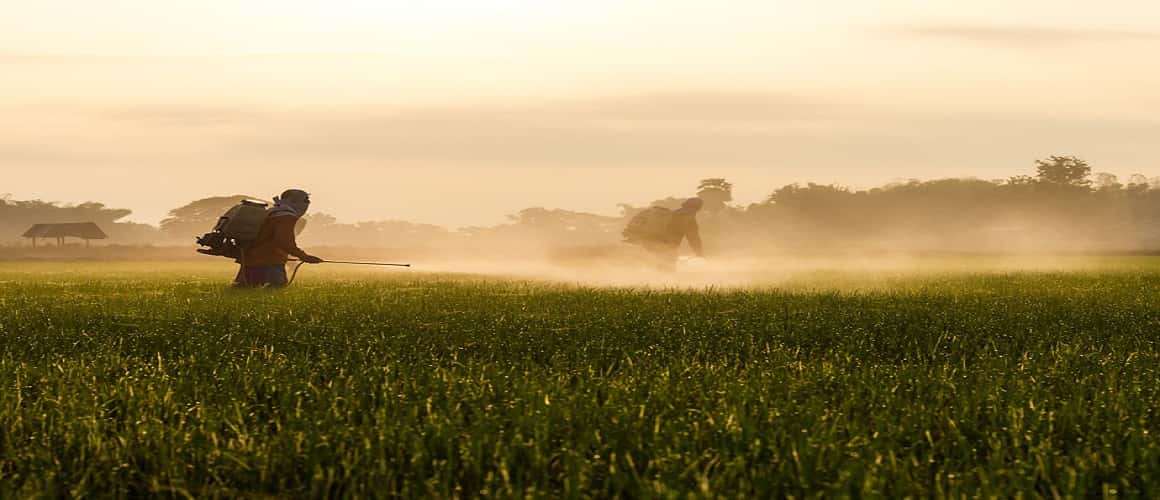A Rise in Zoonotic Diseases: How are the Markets Faring at the Onset of Monkeypox?
by Indira
01/08/2022 4 min read

The world has not yet recovered from COVID-19 and it's witnessing a rise of another pandemic. With new waves of COVID-19 still being tackled by the world, Monkeypox has caused an upheaval. The Monkeypox virus has already been reported in 20 countries worldwide where the viral illness is not endemic. This is one of the most significant virus outbreaks outside of West Africa, where it has been endemic for years. Multiple cases have been reported in the United States, the United Kingdom, Australia, Austria, Belgium, Denmark, Finland, France, and Italy, among other countries. Recently India has reported 4 cases, where the 4th one is from Delhi and the other 3 are from Kerala. WHO has reported the fatality count to 3413 as of the current scenario.

Daily confirmed cases of Monkeypox
To get FREE report copy on the Above Market Click Here.
Everything You Need to Know about Monkeypox
Monkeypox is a virus of the zoonoses variety. Zoonoses refer to a virus that is transmitted among humans from animals. Health experts are of the opinion that this virus is causing a disease similar to those of Smallpox and Chickenpox. It was first detected in the year 1958 when the disease had an outbreak in colonies of monkeys kept for examination, causing two instances of this pox. Henceforth. It was first identified in humans in 1970 in the Democratic Republic of Congo. US Centers for Disease Control and Prevention (CDC) termed it “monkeypox”. Nigeria had a massive outbreak in 2017, where 500 suspected cases and 200 confirmed cases were registered and the fatality was analyzed to around 3%.
This virus has two distinct genetic clades: the central African (Congo Basin) clade, whose fatality rate is 10%, and the west African clade, whose fatality rate is 1%. Zoonotic transmission is caused when a human gets bitten by animals or comes in contact with their infected blood, fur, or fluids. Consumption of infected meat is also a cause of this transmission. It is also spread from person to person via respiratory particles while coming in close contact with each other. However, it is commented by health experts that the immunity to such virus lessens if one has been vaccinated against smallpox.
The foremost symptoms to look out for are fever, headache, swollenness of lymph nodes, muscle pain, and fatigue. The latency period (the interval between the infection and the first onset of symptom/s) is substantially 6 to 13 days but many cases have witnessed it to be between 5 to 21 days. Being a type of pox, it shares the symptoms of chickenpox, smallpox, and measles causing the distinctive symptom of “lymphadenopathy” or the swelling of lymph nodes. It is accompanied by rashes that erupt within 1-3 days of the onset of fever. It affected the face 95% of the time, with palms os of hands and/or soles of feet 70% of the time in such cases. Extreme complications may arise from underlying immune deficiencies and can cause infection of cornea, bronchopneumonia, and sepsis (an infection causing a chain reaction in the body). According to health experts, the mortality rate is 0-11% but it is higher among children. With the rise of Monkeypox recently, the mortality rate is now considered to be around 3% to 6%.
How are Zoonoses Pandemics Affecting Us Since the Dawn of Time?
Zoonotic transmission is not a novice concept to the human race. Throughout the history of mankind, there have been several outbreaks of zoonoses pandemics and they have all been brought somewhat under control. It dates back to 541 AD when the Plague of Justinian started, caused by fleas and rodents. In 1347, Black Death followed, with Third Plague in 1885. Humans have also fought again the Russian flu, dating back to 1889, the Spanish flu of 1918, the Asian flu of 1957, and the Hong Kong flu of 1968 caused by transmission from birds. SARS (Severe acute respiratory syndrome) was detected in 2002 and transmitted by bats and palm civets, Swine flu was followed in 2009 and transmitted from pigs. Succeeding these, MERS (Middle East respiratory syndrome) was detected in bats and camels in 2015, and lastly, COVID-19 from bats and pangolins in 2019 shook the world.

Timeline of Zoonoses Pandemics throughout History
To get More Insights on above Analysis Click Here.
Prevention of Monkeypox:
Clinical trials show that Monkeypox resembles smallpox, which has been eradicated for around 40 years. Smallpox had a fatality rate of 30% which was more grave than that of Monkeypox. Smallpox vaccination is presented to be 85% successful in the prevention of Monkeypox. Much like the prevention procedures of COVID-19, awareness is the first step to the prevention of this virus. It is instructed to avoid close proximity to others, cover the face properly to stop any transmission through respiratory particles, and wash any part of the body, coming in contact with the infected person or animal, with soap and water. As of now, there is no specific treatment for Monkeypox and in case of arousal of such symptoms, medical help is advised to be sought.
What Are the Steps Being Taken to Cure such Zoonoses Diseases?
One Health Zoonotic Disease Prioritization (OHZDP):
One Health Zoonotic Disease Prioritization (OHZDP) is an integrated, unifying approach that aims to sustainably balance and optimize the health of people, animals, and ecosystems. One Health prioritizes the top zoonotic diseases and helps to address the concerns and develop the next course of action by collaborating with One Health partners. With around 60% of human infectious viral diseases being zoonotic, One Health focuses on providing a variety of support and assistance to the countries affected by them. They partner with global organizations like WHO, and USAID and host CDC One Health liaisons with the Food and Agriculture Organization of the United Nations (FAO) and the World Organization for Animal Health (OIE). OHZDP tool was developed to collaborate between the diverse stakeholders and to extract a list of prioritized zoonoses, which will further help in justifying research and subsequently, allocation of funds. OHZDP workshops focus on garnering support for a novice national plan or an updated one, developing strategies and work plans, seeking and recognizing the funding allocations and technical assistance required, creating a coordinating mechanism and collaborating, and improving the data, reports, and surveillance collected, and lastly, striving for improvement in communication while making the workforce of One Health more sound. It is paramount for countries to prioritize zoonotic disease concerns and improve their disease preparedness capabilities. One Health’s benefits are significant to be recognized while also helping strengthen its workforce for critical thinking and collaboration across all sectors to advocate the zoonotic priorities.
Recent developments in the prevention:
- While smallpox vaccines are 85% effective against the monkeypox virus, many companies are in the early stages of developing vaccines.
- Moderna, the maker of mRNA COVID-19 vaccine, is preparing a vaccine for this virus.
- Trivitron Healthcare, the medical devices company has developed a PCR kit for the detection of this virus.
- Emergent Biosolutions, a biopharma company has acquired the rights to Tembexa, the smallpox antivirus treatment which was manufactured by Chimerix. This deal has given rise to the stock value of Emergent by 10%.
- Bavarian Nordic A/S has made a contract with a European country to supply the Imvanex vaccine for monkeypox. To meet the global demand they are gearing up to produce a couple of million doses of the vaccine.
- Over 132,000 doses of Jynneos vaccine have been manufactured by Bavarian Nordic which has been distributed nationwide but it is yet to meet the current global demand.
- Tecovirimat, an antiviral to treat smallpox and related diseases, was developed by SIGA Technologies and is being stockpiled by a US pharmaceutical company who have reached out to the European authorities for the same.
How is Monkeypox Impacting the Different Sectors of the Economy?
Although Monkeypox is not deemed a sexually transmitted disease (STD), it has been declared by the UK authorities that the outbreak is higher among the sexual networks of gays, bisexuals, or any man involved in sexual activity with another man. However, it is not limited to them. It has been reported that 99% of cases of monkeypox are found among men, and at least 95% of those patients are men who have had sex with other men. Preexposure prophylaxis (PrEP), a pill highly effective against HIV transmission used by men as anti-HIV is not as effective against monkeypox. Condoms have been the key tool for the prevention of most sexually STDs including HIV and have been recommended by health experts to be used by people who have recovered from monkeypox up to at least 12 weeks. It is expected that due to the non-effectiveness of PrEP, the sale and the demand for condoms may rise in the future as a measure to prevent monkeypox transmission.
Many countries have been imposing travel restrictions once again in the face of this virus transmission. WHO has declared it to be a public health emergency, with more than 18,000 cases reported in 75 countries. It is expected that once again the trade and tourism industries will face drastic effects, especially the countries with weak economies and health care capacities.
The food industry is expected to see disarray now that raw or scarcely processed meats are being advised to be kept away from. The warning to completely exempt consumption of wild meat or “bush meat” has been given by the authorities to prevent the transmission of monkeypox. Nation Health Service of the UK has placed a warning regarding how meat should be carefully selected and prepared to minimize the chances of the transmission of this virus. Uncooked or minimally processed cooking is a no-go as the virus may spread from the consumption of animals who could have been unknowingly infected.
It is not clear if this virus will cause another pandemic in the midst of the ongoing COVID-19 one. However, it is expected that it will disrupt multiple businesses, and facilitate the growth of some and decline of others in some way or other.
























 USA (+1) 351-333-4748
USA (+1) 351-333-4748
